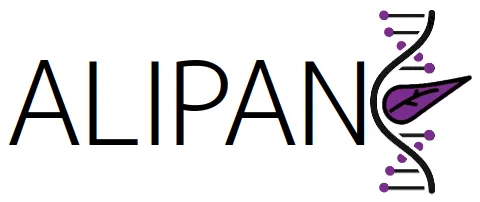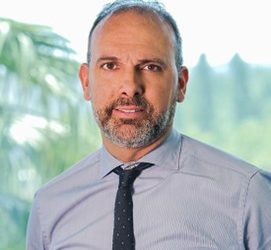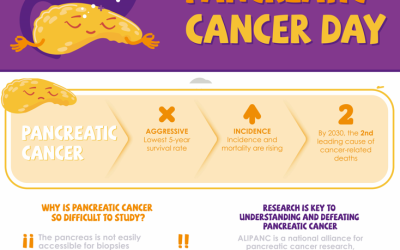ALIPANC was managed and born during the pandemic and has been growing over the last months with 58 groups and 139 members from 29 hospitals and 25 research centers in Spain, including clinical researchers (oncologists, gastroenterologists, surgeons, immunologists, radiologists, pathologists), basic researchers, epidemiologists, statisticians and bioinformaticians. Collaboration between the groups is a fact with studies already underway. Collaborations have also been established with external groups and entities, both nationally and internationally. Building common resources (databases, biobanks) in a federated way using the same protocols is among the challenges of ALIPANC.
Attracting and training young researchers is a major commitment for ALIPANC.
Pancreatic cancer
Pancreatic cancer is one of the most aggressive tumors and, despite its relatively low incidence, it ranks very high in terms of mortality. In Spain, 8,211 pancreatic cancer patients were diagnosed in 2020 and 7,568 died in the same year. When a patient is diagnosed with pancreatic cancer, he loses 98% of his life expectancy because the average survival is still about 7 months, with only 7% of patients surviving 5 years after diagnosis. Although increasingly effective treatments exist, very few patients are able to benefit from them since the majority (80%) of patients are diagnosed when the tumor is already in advanced stages. Moreover, the fact that its frequency is increasing significantly in our environment is going to make this tumor a relevant public health problem if measures are not taken quickly.
Pancreatic cancer out of control
The little interest it has generated so far in society due to its lack of knowledge, in medical and research circles due to the limited availability of options for the management of these patients and the difficulties in researching this cancer, and in funding agencies due to its low incidence and prevalence, has meant that there have been no significant advances in controlling this disease compared to other cancers that are currently preventable and curable, such as breast cancer. All this explains why pancreatic cancer is out of control.
Science is the great hope against cancer.
Thanks to research, 60% of cancers that were fatal 30 years ago are now cured (Ministry of Science and Innovation). In order to control pancreatic cancer, it is therefore crucial to conduct research to understand its causes and pathophysiological and molecular mechanisms, how it can be diagnosed in early stages when it is still treatable, and how to improve its treatment and the management of patients at different stages of the disease.

The Alliance for Research on Pancreatic Cancer in Spain (ALIPANC) is a platform of researchers who join forces and resources to carry out high quality multicenter and multidisciplinary studies on this cancer with the ultimate goal of reducing its incidence and mortality and improving the survival of patients suffering from it.
Alipanc’s latest news
IV ALIPANC Solidarity Gala Dinner: Science and Solidarity Against Pancreatic Cancer
On November 21, ALIPANC held its 4th Solidarity Gala Dinner at the Élkar restaurant in Madrid, coinciding with World...
Next ALIPANC Online Seminar – December 11th, 15:00 CET
Title: Results of VIRAGE trial: a randomized Phase IIb, open-label, study of Nab-Paclitaxel and Gemcitabine...
20th November – World Pancreatic Cancer Day
At ALIPANC, we join once again World Pancreatic Cancer Day, which this year will be held on November 20th. This day is...





